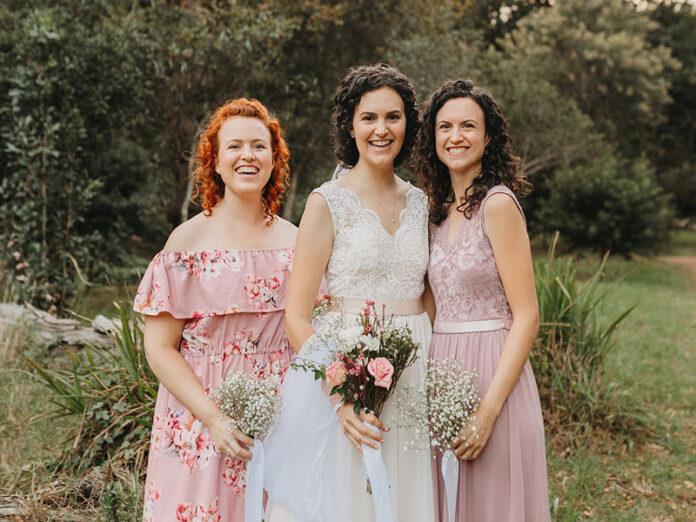Welcome to part 1 of our 6-part series “If they can, so can you!” in which we feature ordinary business owners that have thrived, in spite of COVID and economic challenges.
It may be surprising to hear that now is still a great time to be an entrepreneur. “How can that be?” you may be asking, as you battle constrained cash flow, your market drying up, talent shortages that are causing deep concern, supply chain issues that have only just begun to be felt, your nearest and dearest telling you to “give up”, marketing woes and complaints around pricing abounding – to mention only a chosen few challenges.
Add to that the constant deluge of international bad news; politicians behaving badly (again or still), natural disasters, petty shenanigans in just about every country; while we ordinary mortals battle death, disease, money troubles and fear, it’s easy to start feeling like it has “never been this bad”.
While it is true that many things are bad, the truth is that we currently find ourselves in the 28th big market dislocation since 1929. Things have been this bad and worse before. In each of these threats to the global marketplace, there were businesses that boomed and those that went bust. And every time, as it does, the market restabilises.
It may be different for sure, but things normalise enough to operate and make room for boomers yet again. There may be some calm before the storm, but before we know it, there will be the next big thing. In short, COVID is simply the next and current dislocation we have to deal with – and the truth is, that as business owners, it is up to us to gear up, survive and thrive in spite of these upheavals.
As much as we would like to blame all our business woes on the Covid-19 pandemic, the hard reality is that business challenges are nothing new.
As business coach Kathi Clarke says: “The pandemic hasn’t so much caused all problems that we as business owners are currently facing. Rather, it has served to uncover what was wrong, but not showing yet.”
In spite of what is going on around us, there are those SMEs that have grown tremendously over the past two years and have used the opportunity that the pandemic has presented to their best advantage. Be that to reinvent themselves, change their business model completely or be courageous enough to acknowledge the flaws in their business, diagnose the issues and remedy the situation.
In this series we will be featuring some of these entrepreneurs who have thrived despite being in sectors that were some of the hardest hit by the pandemic. These sectors include Music, Hospitality, Shipping and Transport, Professional Services, Building and Manufacturing.
We’ll tell their story, take a look at what their big problems were when COVID hit and how they overcame their challenges. So, take heart, because the good news is that business is fixable, and we hope that these stories will inform, inspire and enable you. These real, resilient wins can be yours too.
Case study #1: Learning The Harp
Owned by three sisters, Christy-Lynn Dosé, Megan Dugeč and Cara Smuts.
Christy-Lynn Dosé (33) only started learning the harp as a complete beginner when she was 25, but in just three short years her talent and hard work paid off. She mastered the instrument, passed her Grade 8 and was officially a performing, working, teaching and composing harpist with a palpable and infectious love for what she did.
However, as is the case with so many musicians, turning her passion into something that could make enough money to be deemed ‘a living’ eluded her. She was resigned to doing weddings and events, working when everyone else was off, teaching 1-2-1 and composing, with the million-to-one odds of ever becoming the next Michael Bublé or Ed Sheeran of the harp world!
“By 2017 I realised that I needed help, because my number one problem was that I had no idea how to turn what I was doing into a profitable livelihood that could support me”, says Christy-Lynn.
Flash forward and today she and her two sisters, Megan Dugeč and Cara Smuts, run Learning The Harp that is turning six-figure numbers monthly and they profitably employ a total staff complement of ten. Their 1 000 retainer clients (none of whom are in South Africa!) are learning to play the harp and loving it, paying each month with joy and coming back for more.
Christy-Lyn and Cara are based in Cape Town in their home-based surrounds which now boast a swish, new recording studio; Megan “runs the show” from Croatia; and the other seven staff work in Cape Town producing what’s needed to keep the largely American Harp Players and Learners enthralled.
And yes, Christy-Lyn found her business help by connecting with Industrial Psychologist and Business Coach Kathi Clarke – who is between Cape Town and Edinburgh – and has been meeting with the business twice a month, helping them every step of the way to transition from that solo performer to where they find themselves today, a thriving business.
And no, they didn’t have any loans or family money. In fact Christy-Lyn was barely making a living when they started the business and first met Kathi. And no, they haven’t spent fortunes on smart, silver business bullets that (as Kathi was quick to underline) don’t exist when you are looking to authentically build a resilient business. They haven’t forked out for expensive, business strategies either. Instead, they have steadily and systematically grown each month by putting best practices into effect year-on-year as they followed the plan.
In short, they have all worked hard and dedicatedly with their coach to grow their business from scratch in an extremely tough industry, through impossible times and against the odds, using best practice (which exists) and everyday tools and strategies that anyone can use.
How did they do it?
Christy-Lynn’s question to Kathi “is it possible to turn what I do into a livelihood” was met with a resounding “yes”. “So firstly, I had to realise that I was not only a Harpist or a Harp Teacher. I was also a business owner,” she says.
“I learned the basics from Coach Kathi, started applying it and began as a sole practitioner in a Group Coaching class. With the growth and gains in that fledgling business, I was able to approach my sisters – first Megan and then Cara – to come on board as joint owners of our new enterprise.” With only one of the three owners being a musician, Learning the Harp had to move from an “I” self-employment to a “we” business.
Secondly, the Learning the Harp owners realised that they needed a vision that would mean stretching themselves – uncomfortable though that would be – into a fearful zone that none of them knew, or was even sure that they really wanted. They knew that they needed to sell something different other than the usual performances at events, live gigs, CDs and 1-2-1 lessons that most musicians sell.
With Kathi’s guidance, the sisters were able to create a revamped “grocery shelf” of offerings, including a novel lesson format, new complementing product lines that form part of their growing ‘merch section’, and tackle strategic alliances that increase their global visibility, impact their pipeline and help them continue to grow month-on-month profitably and sustainably.
The sisters applied their combined talents in systems, technology, video production, music-making, harp-expertise and novel marketing to keep the pipeline full of clients and attract the talent that now makes up their team who they can rely on and helps them to continue to deliver to the highest of standards on a global stage. After all, any business needs to be able to work profitably without the owner there 24/7. This rule does not change because you are a musician or because of COVID. As Kathi underlines “owners need a life, and their business is a vehicle to that life, to funding it well – and it must be built to deliver that. If it is failing to deliver the means and a life worth having, then something has to change”.
Throughout the ups and downs of their growth journey, Kathi has helped them hold on to a positive attitude and has kept them accountable. Identifying and settling on sensible business structures, and putting in place the systems to drive their capacity to deliver, build their sales funnel, grow their social media audiences and improve their capacity to deliver has helped them reach where they are today. Not only are they all employed profitably, but
Learning the Harp has also been able to withstand the catastrophic impact of COVID world-wide and now brings joy to their delighted, loyal and growing client base (largely in the US but also in Canada, the UK, Germany, Europe and Australia).
Have the courage to dare to dream big
Expansion has also enabled the sisters to extend an invitation to Cara’s husband, Kevin Smuts (an experienced, internationally recognised Composer responsible for works like the music score for the Oscar-winning My Octopus Teacher) and involve Christy-Lyn’s husband Jonny Dosé (a highly respected guitar teacher and recording studio owner) in creating their international online presence and own recording capability respectively. Truly a family business.
Their results continue to inspire them to have the courage to ‘dare to dream BIG’. “We no longer listen to those musicians who tell us they live from hand-to-mouth and give up weekends to eke out a living” says Christy-Lyn. Instead, they’ve become an inspiration to those they know around them as to what is possible and a real encouragement to both the harp and business world.
Parting words to other business owners? “When people ask us the reason for our success, I always say we didn’t do it alone. As Christians, we prayed through each and every decision and we got a really good business coach whom we trust and enables us to think differently. She helped us to let go of what we may well love, but isn’t working for us. Follow the proven steps and best practices – they are everyday tools and strategies that you too can use to succeed.”
 By Kathi Clarke, registered Industrial Psychologist, internationally-certified Business Coach and an award-winning business growth expert.
By Kathi Clarke, registered Industrial Psychologist, internationally-certified Business Coach and an award-winning business growth expert.




